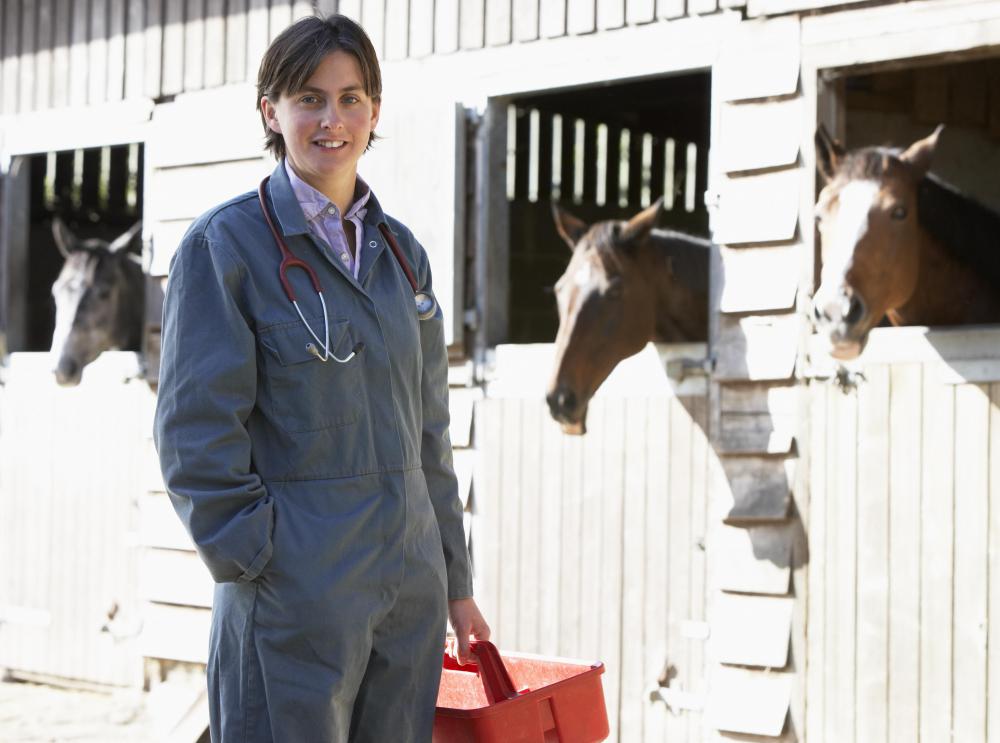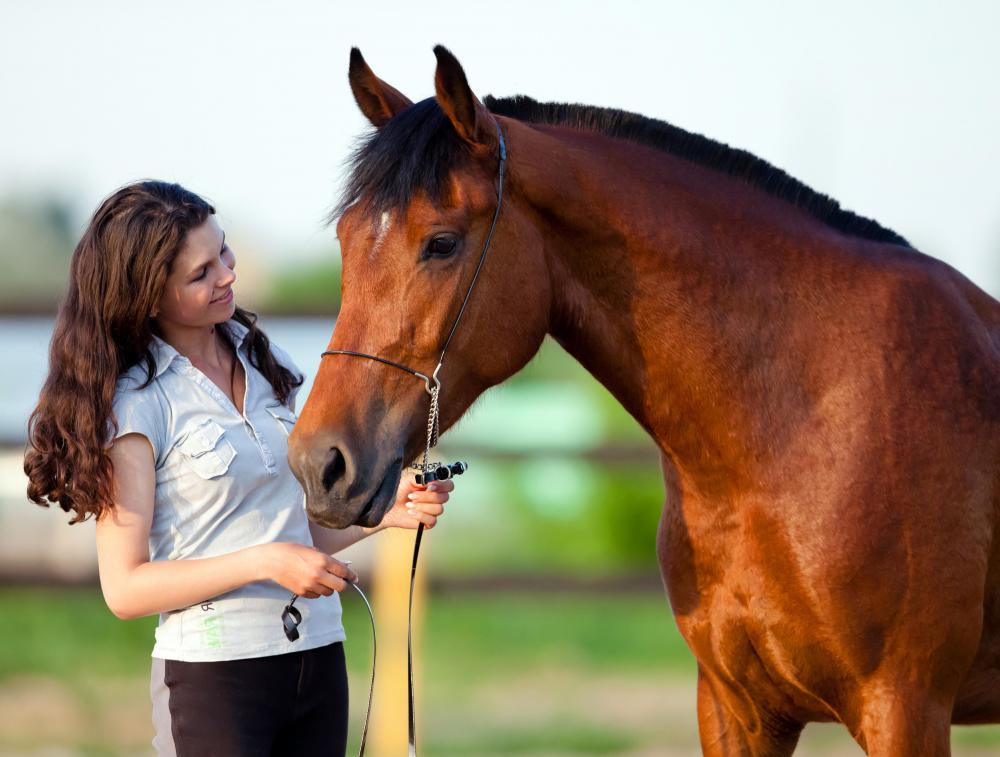At WiseGEEK, we're committed to delivering accurate, trustworthy information. Our expert-authored content is rigorously fact-checked and sourced from credible authorities. Discover how we uphold the highest standards in providing you with reliable knowledge.
What does an Equine Chiropractor do?
An equine chiropractor is someone who practices chiropractic techniques on horses. Some equine chiropractors are also veterinarians, but not all are. Equine chiropractic techniques are believed by some to complement traditional veterinary medicine, and are regarded as a way to heal certain ailments and muscle irregularities without the use of any drugs or chemicals. An equine chiropractor is considered an animal alternative therapy provider, and little formal training is required to begin practice. The use of chiropractic techniques on horses and other animals is somewhat controversial, and it is usually recommended that chiropractic treatments be given in conjunction with regular veterinary check-ups.
The role of an equine chiropractor is very similar to that of a traditional human chiropractor. The practice of chiropractics is an effort to balance the spine, nervous system, and muscles in the body. The practice usually involves massage or forceful spinal realignment. Equine chiropractic services are commonly sought after a horse injury or suspected horse injury.

In horses, chiropractic practices frequently involves spinal realignments and adjustments with a technique known as the “high velocity thrust.” The thrust is a blunt force directed into the spine, either with the chiropractor’s hands or with a chiropractic tool. The thrust is believed to alleviate spinal tension in the back. Spinal tension can be caused by an injury, by stress, or by poor muscle alignment.

Most jurisdictions do not regulate animal chiropractics the way they regulate the practice of traditional veterinary medicine. In most of the world, including the United States, Canada, and the majority of European countries, there exist no formal qualifications for animal chiropractors. Chiropractics is generally regarded as an alternative therapy, not as a medical practice. Training courses exist in many locations, but all are privately established; they teach techniques, but on any standardized curriculum and not in preparation for any required certification.

Associations such as the American Veterinary Chiropractic Association and the Animal Chiropractic Certification Commission compile databases of chiropractors who are certified or licensed to practice chiropractics on animals, but these credentials are not universal. The requirements for certification are set by the organizations, not by any governing body. Anyone, regardless of training, can hold himself out as an equine chiropractor without fear of breaking any law or violating any practice rules.
Some veterinarians advocate equine chiropractics, and many even practice it. Others are more skeptical, questioning the value and attendant risks of using spinal realignment techniques on horses at all. While equine chiropractics has been established to cure many horse problems and pains, even the most skilled equine chiropractor may not be able to properly diagnose what is causing a particular ailment. Chiropractic fixes may in some cases mask larger underlying problems. It is generally recommended by veterinarians that chiropractics, if used, be undertaken only in conjunction with veterinary care, as part of an integrated care regimen.
AS FEATURED ON:
AS FEATURED ON:













Discuss this Article
Post your comments